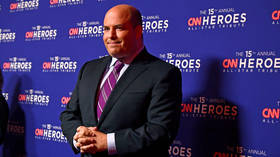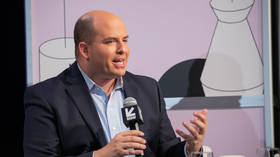CNN wonders whether media is ‘out of touch’

CNN has turned introspective, apparently discovering that most Americans have tuned out its coverage of the Covid-19 pandemic, reflecting a disconnect between legacy media outlets and the general public.
Host Brian Stelter broached the subject on Monday, asking whether the media is “out of touch with the public about Covid.” CNN’s senior media reporter Oliver Darcy replied that based on what he’s seen in his travels, much of the press is “very out of touch” with the populace.
“If you travel the country, people are not really living in the same bubble that it seems that most of the media is messaging toward,” Darcy said. “And so, I think this is an issue because if people are tuning out what’s going on in cable news, if we’re not messaging toward the general population, they’re just ignoring everything and living their lives, and we’re not really getting the information that they need to them.”
CNN’s @oliverdarcy worries people will be directionless without the major media: “If people are tuning out what’s going on in cable news … they’re just, you know, ignoring everything and living their lives and we’re not really getting the information that they need to them." pic.twitter.com/h1dgECjS79
— Tom Elliott (@tomselliott) January 10, 2022
Stelter appeared to shift blame for the estrangement to the US Centers for Disease Control and Prevention (CDC), which has altered some of its Covid-19 mitigation guidelines, such as shortening the recommended quarantine period for people who test positive for the virus.
“There’s a huge credibility crisis for the CDC,” the host said. “And Oliver, to your point, if it just causes people, if they hear all these mixed messages and all this confusion and it’s too complicated, they just move on and ignore it.”
But Darcy brought the conversation back to the media’s own messaging. “When we’re messaging toward a very small group of people, maybe who are taking the pandemic far more seriously than the average person, I think we’re not doing our jobs as effectively as we should be doing.”
He gave the example of dire warnings about large gatherings in the lead-up to Thanksgiving, Christmas and New Year’s holidays, noting that people aren’t closely monitoring and following such advice. “We need to be maybe coming up with realistic solutions and advice to the general public when talking about Covid,” Darcy said.
Stelter agreed, saying, “Meet viewers where they are, meet readers where they are, and people are in a wide array of places now when it comes to risk assessment.”
CNN and other mainstream outlets reaped a ratings bonanza in the early days of the pandemic. A hidden-camera report by Project Veritas showed CNN technical director Charlie Chester claiming that the network hyped fears about the virus to keep viewers glued to their televisions.













